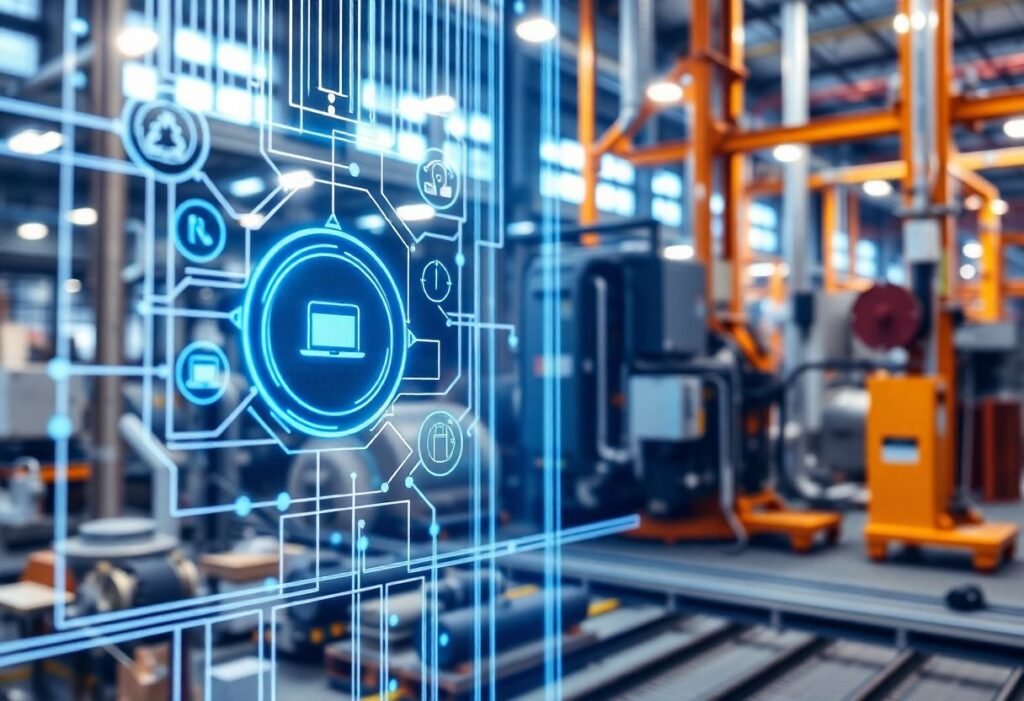The Internet of Things (IoT) is transforming industrial automation, bringing about unprecedented innovations that are reshaping the way industries operate.
Understanding the Role of IoT in Industrial Automation
The Internet of Things (IoT) plays a crucial role in industrial automation by connecting machinery, systems, and sensors to enhance operational efficiency. Through IoT, companies can monitor equipment in real-time, collect data analytics, and streamline processes. By integrating IoT solutions, industries can achieve higher productivity, reduce downtime, and minimize waste, ultimately leading to significant cost savings. Industry leaders are harnessing the capabilities of IoT to gain competitive advantages, illustrating its importance in driving innovation within industrial sectors.
Enhancing Operational Efficiency Through Connectivity
One of the primary advantages of IoT in industrial automation is the ability to enhance operational efficiency through improved connectivity. Connected devices provide immediate access to real-time data, allowing for timely decision-making. Data-driven insights enable organizations to identify bottlenecks and inefficiencies within their processes. Furthermore, IoT facilitates predictive maintenance strategies; by monitoring the health of equipment, businesses can foresee potential failures and perform maintenance before issues arise. This proactive approach not only enhances performance but also extends the lifespan of equipment.
Revolutionizing Supply Chain Management
IoT technology is revolutionizing supply chain management by providing end-to-end visibility. Connected sensors track the location and condition of goods throughout the supply chain, enabling businesses to optimize their inventory management and reduce delays. With accurate data, companies can fine-tune their logistics, ensuring timely deliveries while minimizing costs. Additionally, IoT assists in improving compliance and traceability, essential for maintaining standards and ensuring quality across all operations.
Driving Data-Driven Decision Making
The incorporation of IoT in industrial automation empowers companies to embrace data-driven decision making. By collecting and analyzing vast amounts of data from various sources, organizations can gain valuable insights that inform strategic decisions. This shift towards a data-centric approach enables businesses to adapt quickly to market changes, optimize production processes, and tailor products to meet customer demands. Ultimately, the ability to make informed decisions is paramount for fostering innovation and maintaining competitiveness.
Enhancing Safety and Compliance
With the integration of IoT in industrial automation, safety and compliance measures have significantly improved. Wearable IoT devices can monitor the well-being of workers in hazardous environments, sending alerts in real-time if unsafe conditions are detected. Furthermore, IoT enables better adherence to regulatory requirements by automating compliance checks and ensuring that industries meet safety standards. By prioritizing safety through IoT innovations, companies can protect their workforce and maintain a safe working environment.
The Future Potential of IoT in Industrial Automation
The future of IoT in industrial automation is bright, with continuous technological advancements promising further innovations. Emerging technologies such as artificial intelligence (AI) and machine learning are expected to integrate with IoT, enhancing predictive analytics and machine autonomy. As industries continue to adopt these technologies, they will unlock new efficiencies, redefine operational frameworks, and drive sustainable growth forward. The ongoing evolution of IoT will undoubtedly shape the future landscape of industrial automation, encouraging a culture of innovation.
Disclaimer: This article is intended for informational purposes only and should not be taken as professional advice.





















